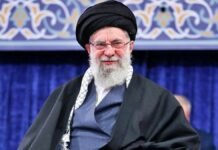
New Delhi: Lee Kun-Hee, chairman of Samsung Electronics, has died. He was 78 years old. Lee had been ill for a long time. He is credited with transforming Samsung from a small television company into a consumer electronics brand. A statement from Samsung said Lee died on Sunday. He had his son Lee Jei-yong and other family members with him at the time.

Lee was hospitalized in May 2014 after suffering a heart attack. He has been in the hospital ever since. In his absence, his son Yong oversaw the operation of Samsung, South Korea’s largest company.
A statement from the company said, “At Samsung, we will not forget Lee. We are grateful to them for the journey we have shared with them. “
Lee Kun-hee took control of the company from his father. Under his 30 years of leadership, Samsung Electronics Company became a global brand. Under his leadership, Samsung also became the largest smartphone, TV and memory chip brand. With the help of Samsung, South Korea became the fourth largest economy in Asia. Samsung Group also works in the areas of shipbuilding, life insurance, construction, hotels, amusement parks etc.
Mr Lee rarely spoke to the media and had a reputation for being a recluse, earning him the nickname “the hermit king”.
Samsung is by far the largest of South’s Korea’s chaebols – the family-owned conglomerates that dominate the country’s economy.
Chaebols helped to drive South Korea’s economic transformation after World War Two, but have long been accused of murky political and business dealings.
Mr Lee was twice convicted of criminal offences, including the bribing of former President Roh Tae-woo.
He stepped down as Samsung chairman in 2008 after he was charged with tax evasion and embezzlement. He was handed a three-year suspended jail sentence for tax evasion but was given a presidential pardon in 2009 and went on to lead South Korea’s successful bid to host the 2018 Winter Olympics.
He returned as chairman of Samsung Group in 2010, but was left bedridden by the 2014 heart attack.
Mr Lee’s son, Lee Jae-yong, has served jail time for his role in a bribery scandal which triggered the ousting of then-President Park Geun-hye from office in 2017. Last month, prosecutors laid fresh charges against him over his role in a 2015 merger deal.





















































